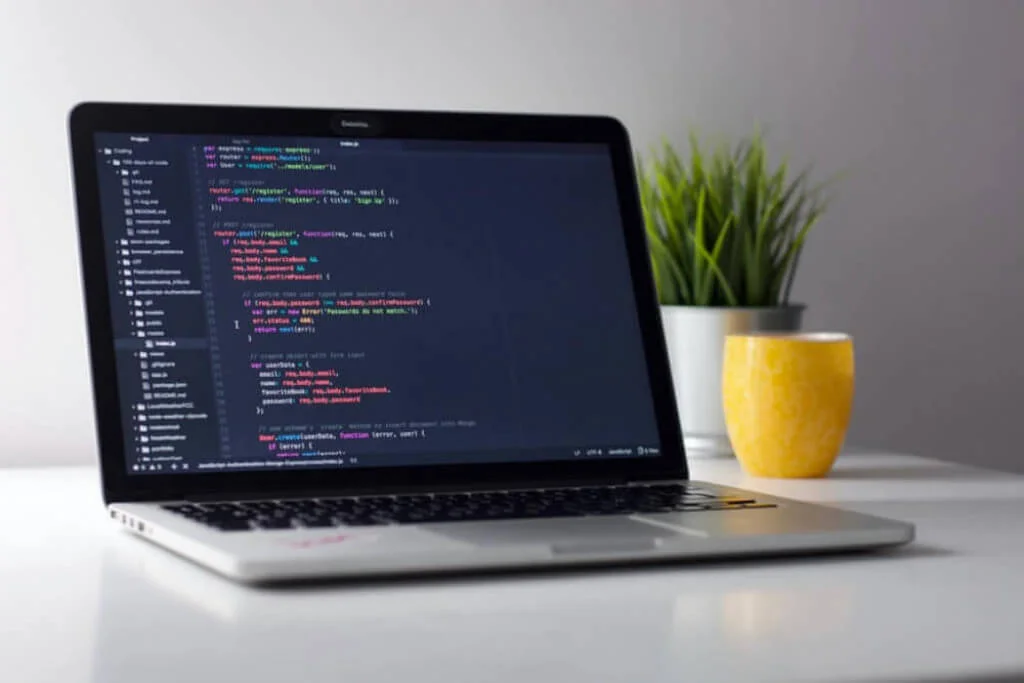It’s not hard to compose a code, but it’s undoubtedly compelling to compose an exemplary code.
A lousy code can be categorized in different forms. They include messy code, variables that don’t make sense, programs that break with just one adjustment, and massive if-else chains. The program that you’ve written might work one time but will never work until it’s examined carefully.
If you want to master the skill of programming then do not ever hope to shortcuts. Just go for writing codes that can later be maintained conveniently. Apart from easy maintenance by you, it should always be easy for other developers on the same team to maintain the code easily.
If you’re wondering how to write effective codes, the basic thing to remember is that you can write good quotes by knowing proper coding principles and using them while you code.
This is what helps in making you a better programmer. It enhances the quality of your code, and then adding other functions or features to it becomes convenient for everyone on the team. Let us now discuss the sixteen basic principles of coding and how they help.
Here is the List of 16 Basic Principles of Coding
1- DRY (Don’t repeat yourself)
Don’t repeat yourself (DRY) code means that you don’t replicate a code and instead of that try using Abstraction to summarize the regular things in a single area.
Imagine having a code block in two or more areas, just try adding some twists to the process, or if you will be using a hard-coded value for more than one time, make the value public constant. The advantage of this design principle is that the code will be much easier to manage later.
It’s essential that you don’t abuse it; replicating is not for the code but for ensuring a good service.
This means that if you are using a standard code to verify SSN and order, in no way does it mean that they are similar or will stay the same even after a few years.
DRY code can conveniently be maintained. It’s easier to debug one loop that is handling around 50 repetitions than debugging a loop that has 50 blocks of code and handles one repetition.
Read More About: What does sandbox mean in development?
2- Keep It Short And Simple (KISS)
It may sound a little hostile to you, but it’s a coding principle you should live by. What does this principle actually imply?
It means that you should be mindful of the code you are writing and try to keep it as precise as possible. Try not to get carried away with showing off your coding skills. If you can write a script in a single line, write it in a single line.
Try using explicit names. Take benefits of coding libraries to use the tools that exist already. Just make sure to compose a code that can be easily maintained even after 6 months. Keep it simple as it will save you from a headache.

3- Refactor
There is a famous saying “Practice makes perfect” This implies in the field of coding as well. Bear in mind that your code won’t ever be perfect the first time you write it. Refactoring your code means examining it again and again and looking for better ways to optimize it. Make it more effective while you keep the results exactly how they are.
Codebases have constantly been evolving. There is no shame in having to rewrite or even re-design your code from scratch as long as it yields a good output. It doesn’t mean your first time writing a code didn’t go successfully. You will just get more familiar with writing code as time passes. Just use that knowledge you get to adjust the code you already have to be DRY or follow the Keep It Simple, Stupid principle.
Read More: How to reduce bugs in software
4- Document Your Code
Any developer who has more experience than you will know how important it is to record your code along with the comments. This option is available for all languages, and it is always wise to write these documents. Leave separate comments to explain some objects, enhance variable definitions, and make specific features more convenient to understand.
This might take up some extra effort and time while composing a code, and having to understand that what you are writing is error-free, but you still need to leave comments.
You can take a stab at composing a program, leaving it for quite some time, and afterward returning to it to roll out certain improvements. You’ll say thanks to yourself for reporting the program as opposed to thoroughly considering each element and capacity to recall how it functions. Assuming you have a coding group, you’ll be baffling your kindred coders by constraining them to unravel your linguistic structure.
5- Creation Over Legacy
In the event that you compose a code by utilizing OOP, you will find this rule truly valuable. The creation over legacy rule is fundamentally about objects with complex ways of behaving comprised of occurrences of items with various ways of behaving. They ought not to be adding new ways of behaving and acquiring a class.
Contingent upon the legacy prompts two critical issues. The first is that the legacy order can get muddled assuming you have a go at doing it rapidly. You also have less flexibility for telling behaviors that are different or special. We should simply say you have needed to carry out ways of behaving to share:
Structured computer programs are more straightforward and cleaner to compose, more helpful to keep up with, and have adaptability in characterizing ways of behaving. Every individual way of behaving is from their own class. You can make complex ways of behaving simply by blending various ways of behaving.
Read More About: Advantages and disadvantages of NoSQL
6- Clean Code At All Costs
As we have already referenced before, you do not have to pack a lot of logic in a simple code. Keep it precise yet explicit. You should aim to provide a solution rather than a riddle.
Don’t try packing a lot of logic in just one line. Make sure it is properly documented and has comprehensive instructions attached to it. If your code can be read easily, it can be conveniently maintained as well.
7- You Are Not Going to Need It
This rule tells us that you ought to never code just for the sake of performance, imagining that it might be of help someday. Try not to simply attempt to tackle an issue that doesn’t exist.
While attempting to compose a DRY code, developers can break this standard. More often than not, unpracticed software engineers take a stab at composing theoretical and conventional code as much as they possibly can. An excessive amount of reflection prompts swelled code, which can’t at any point be kept up with.
Possibly utilize the DRY rule just when it is required. In the event that you see pieces of code composed more than once, dynamic them. Make an effort not to think unnecessarily far out to the cost of your current code.
There are two fundamental motivations for you to rehearse this standard,
- You will be saving time as you can try not to compose code that you probably won’t require later.
- Your code works better as you try not to add an excessive number of surmises that end up being pretty much off-base however stick to it regardless of everything else.
Read More About: What are the different environments in software development?
8- Open/Closed
This standard is tied in with meaning to make your code open for expansion yet shut for any adjustment. This is an essential standard you want to think about while delivering a library or system that will be utilized by others.
For example, assume for a moment that you’re sustaining a GUI system. You could deliver code to simply adjust and coordinate the code you’ve delivered. However, imagine a scenario in which you discharge a significant update following four months.
Their code will wind up breaking. This will make the specialists despondent. They would unquestionably not have any desire to involve your library for a more extended time frame, regardless of whether it was truly useful.
All things being equal, simply discharge a code that forestalls direct change and suggests an expansion. This partitions the center way of behaving from adjusted conduct. The code is presently more steady and can be kept up with without any problem.
9- Single Responsibility
When you start writing code for a long time, your code can be clumsy. You will have some modules or classes that perform some functionalities. This will end up having classes that include hundreds and thousands of code lines.
This principle tells us that every module or class in a code should only have specific functionality. Or, we can say that a class or module in a code should only be accountable for tasks about one specific function. This helps in keeping your modules clean and minimal.
Read More: Quality Assurance Methodology
10- Separation of Concerns
This rule is a theoretical rendition of the past rule. This guideline tells that a program ought to be planned with particular compartments, and these holders ought not be open to one another.
An ideal illustration of this rule is the MVC plan. Model View Controller isolates a program into three unique regions: the information, the rationale, and the showcase. Contrasts in MVC are truly normal in the present most renowned web systems.
For example, the information base dealt with by the code doesn’t have to know how to give the expected information in the program. The given code takes input from the person who’s utilizing it, however, the rationale code handles the locating. Each piece of code is absolutely autonomous of each other.
The outcome is the code that can undoubtedly be repaired. Assuming that at any point you need to revise the given code, you can do it without being worried about how the information gets saved, or the rationale gets handled.
11- Encapsulate the Changes
The only thing that stays the same in the field of software is change. So, always confine or summarize the code you think should be edited someday.
The advantage of this rule is that it can be managed without any problem and makes it easier to test a code which is properly encapsulated.
On the condition that you are coding in Java, then make sure to follow the rule of making default methods and variables private and providing access at every step.
A lot of design patterns in Java use Encapsulation. One of the examples of Encapsulation is the factory design. This design encapsulates the code of object creation and makes you flexible in introducing a new application or website later without any impact on the current code.
Read More About: What does no-code mean?
12- Delegation Principles
Don’t do everything alone, Assign it to its respective person.
If you have any desire to look at two things for uniformity, we request that the class do the examination rather than the client class doing that correlation.
The primary benefit of this guideline is no duplication of a code and is helpful to change the way a code behaves. Occasion designation is likewise an illustration of the appointment guideline where an occasion is allocated to its overseers for taking care of.
Read More About: How to make Uber-like apps?
13- Interface Segregation Principle (ISP)
According to this principle, a customer shouldn’t use an interface if it doesn’t use it.
This is when an interface has a lot of features while the customer just requires one of the features and no other.
The design of an interface is obviously a hard task as if you release the interface, it cannot be changed if they don’t disturb all the implementations. Great news is that Java 8’s default method feature gives us a method for evolution of the interface, but not all the other programming languages contain this feature.
14- Liskov Substitution Principle (LSP)
This principle says that subtypes should be a replacement for a supertype. Functions or ways that use superclass type should be allowed to work with the object of the subclass without any problem.
The LSP principle is related to the Interface Segregation Principle and Single responsibility principle.
Suppose a class is more functional then a subclass may not be supporting some of its functionality and violate the LSP.
If you want to follow this principle, the class or subclass derived must improve its functionality and not eliminate them.
Read More About: What is an enterprise application?
15- Programming for Interface instead of implementation
A programmer will have to program for its interface not for the implementation as this will allow you to have a code flexible enough to be compatible with any upcoming implementation of the interface.
16- Favor Composition instead of Inheritance
There are two common methods to reuse an already written code, Composition and Inheritance. Both of these ways have their own pros and cons, but, generally you should always be in favor of composition instead of inheritance.
Some people might be opposing it, but we think that Composition is a much more flexible way than inheritance.
It lets you change the behavior of a class at run-time by setting the property, and with the help of interfaces to form a class, you can use polymorphism, which makes it flexible to change it with implementation whenever you want to.
Read More About: How do you write a neat code?
What Makes You A Good Programmer?
Figuring out how to be an extraordinary software engineer requires a great deal of time and exertion. These sixteen essential coding decides that we have referenced above are the way to turning into an extraordinary developer.
A good programmer would always understand how to make their applications conveniently usable, finish the project within the features required and timely, and work well in a team environment. By following these principles of coding, you will surely go on a path of success in your own programming career in the future.
Conclusion
Good programmers and properly readable code go really well with each other. If you want to be a good programmer, always write effective and easily readable, and maintainable code. Leave comments where it is needed. Stick to some style guides, whether they are dictated by your company or some language.
If you need help with software development, Contact Hapy.
Happy Coding!
FAQs
What is the best coding program?
There are 9 best programming languages every programmer should learn. They are as follows.
1- JavaScript.
2- Scala.
3- Python.
4- Go.
5- Swift.
6- Elm.
7- Rust.
8- C#
9- Ruby
What are the 3 types of coding?
The three types of coding are:
1) Object-Oriented Languages.
2) High-Level Language
3) Low-Level Languages.




